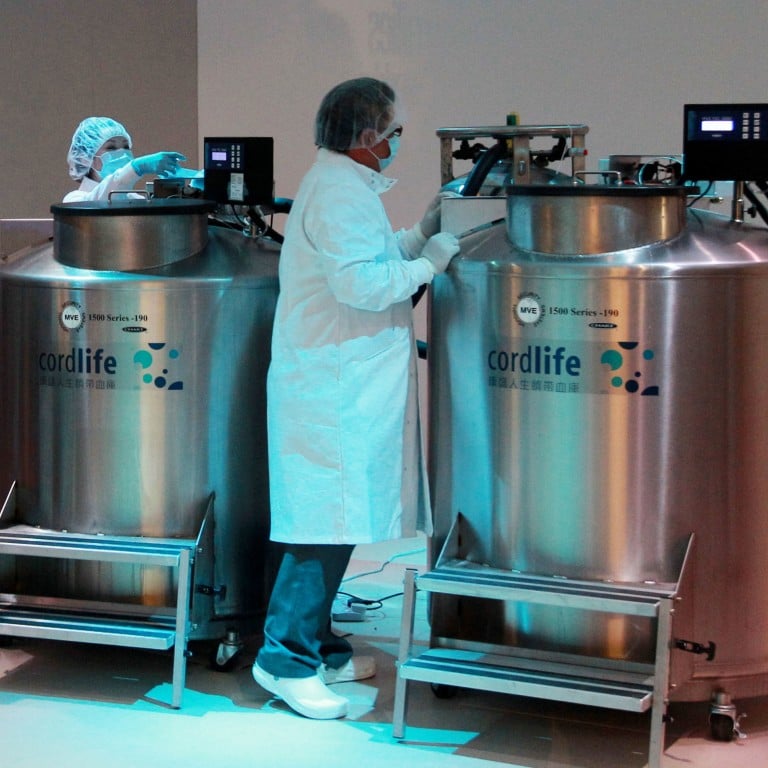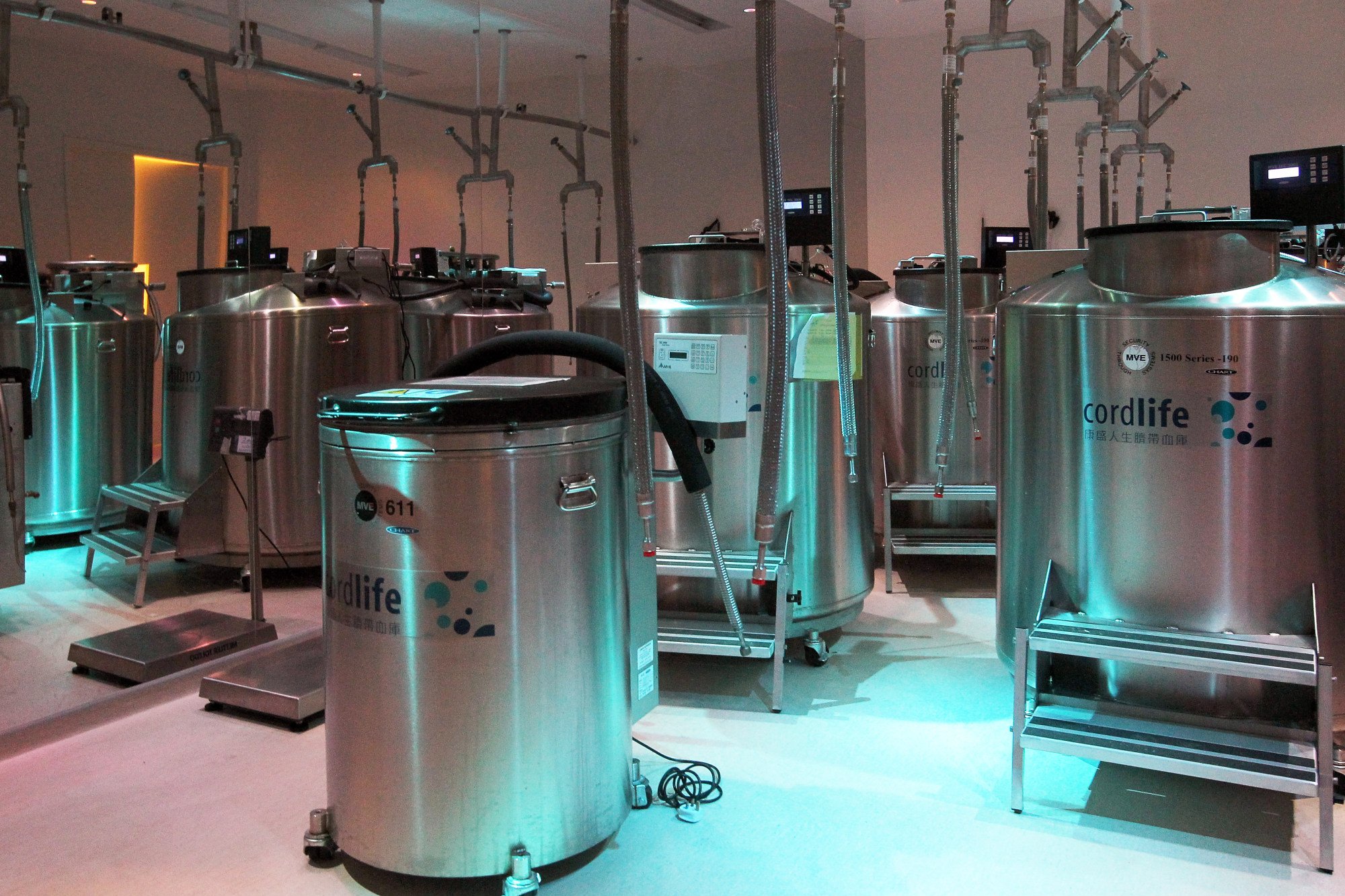
Singapore stem cell bank scandal gives parents in Hong Kong, Philippines, India the jitters
- Cordlife Group Ltd., a major operator of cord blood banks across Asia, irreparably damaged thousands of children’s samples through improper handling
- The ongoing Singapore case has implications across the region, renewing concerns over a largely untested industry marketing itself to anxious parents
More Hong Kong parents pay the high cost of storing umbilical cord blood
The parents paid for years to have their infants’ cord blood stored, with the understanding that the stem cells they contained may provide life-saving protection if their children subsequently fell ill. They have formed a group to evaluate potential legal action. Some rejected Singapore-based Cordlife’s proposal to refund the fees for samples deemed to be damaged, saying it was inadequate.
The company has “little regard and no remorse for losing something so precious”, said one parent, who was offered about S$5,000 (US$3,700). Any penalty meted out by Singapore’s Ministry of Health must serve as a warning to all cord-blood bank providers, they said, asking to remain anonymous to protect the family’s privacy.
The agency found about 2,200 units of cord blood in one holding tank were damaged, and an estimated 5,300 units in another tank plus a dry shipper were “non-viable”, The cause was insufficient levels of liquid nitrogen in the tanks and inadequate monitoring of the dry shipper, which led to temperatures rising above acceptable levels several times since November 2020.
Cordlife lodged a police report accusing “mostly former” staff members of potential wrongdoing in connection with the defects on April 17. Its former CEO and five board members were arrested earlier this year for alleged breaches of disclosure obligations, according to company fillings. Three other board members, including those who filed the police report, postponed their own interviews with authorities.

The situation has the company’s clients in other parts of the region on alert, with parents in Hong Kong taking to social media to express concerns about the tanks in their area.
Cordlife has reviewed its operations in other markets and found no concerns, it said in an emailed response to questions.
Blood extracted from an umbilical cord is full of stem cells, a miraculous feat of biology that can turn into any type of blood cell. They are particularly useful in the treatment of some cancers, blood diseases like anaemia and an array of immune-system disorders. However, any genetic or other defects present when the child is born will also be found in the stem cells, in some cases rendering them useless.
It’s the loss of any potential protection that has some parents alarmed.
It’s out of my control … Even if I call them everyday, I can’t do anything
Michelle Chan, one of the parents, said she’s seeking “appropriate compensation” so she can search for a future match on her own. “I’m not bothered about the money I have paid, but importantly how to move forward,” she said.
Still, many medical organisations don’t support the use of private cord-blood banking.
Commercial organisations charge to extract the cord blood, plus an annual fee to store it. The sample is reserved for the donor and the family. Public banks take cord-blood donations freely, but they’re available to anyone in need and aren’t held in reserve for the donating child.
Neither the American Academy of Paediatrics nor the American Medical Association recommends storing cord blood as a form of “biological insurance”. Most children never need it and siblings have only a 25 per cent shot at a match, making the benefits too rare to justify the cost. Often alternative treatments are available, effective and far less expensive, according to their guidelines.

A study found only one in 400 children to one in 200,000 children with stored cord blood would be able to use it throughout their lifetime. Only seven units have been retrieved from Cordlife’s Singapore facility since the company was founded in 2001, while tens of thousands of families have used it to store blood samples.
Singapore’s Ministry of Health found similar usage rates among other commercial cord-blood banks in the city state.
The Cordlife situation underscores the difficulty of overseeing the industry and the high cost of investigations when deficits are uncovered. The health ministry’s probe started with a complaint in July 2023 from a member of the public, after the company cleared a routine inspection in late 2022. No other details are available.
More tests are now needed for other tanks that had misplaced temperature probes. They contain 14,000 units of cord blood, each stored by a family seeking to protect a child. While initial testing of 30 samples passed a validity test, it would take another year and more than 200 samples to obtain statistically significant results, according to the Ministry of Health.
Singapore’s single women ‘not supported’ even as egg-freezing rules are eased
The uncertainty is weighing on parents who paid upfront to ease their anxiety about potential future medical risks.
Madam Tan, who only gave one name and has two sons with cord blood in the tanks that are still to be tested, said she’s unnerved about the situation.
“It’s out of my control,” she said. “Even if I call them everyday, I can’t do anything.”
She paid more than S$5,000 for each son’s cord-blood storage after seeing the company’s “one chance, one choice” advertisements in a private clinic.
“It played on new parents’ anxiety that something of a perfect match can exist to help my child just in case something happens,” she said.
Now she’s finding that might not be the case.

